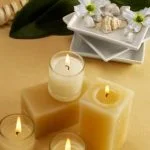Aromatherapy has gained significant popularity in recent years as people seek natural remedies for various ailments and ways to promote overall well-being. This holistic approach to healing utilizes the powerful properties of essential oils derived from plants to enhance physical, mental, and emotional health. The question often arises, “where to apply aromatherapy oils?” In this article, we will explore the different areas of application and discuss the numerous benefits of incorporating aromatherapy into your daily routine.
Aromatherapy is not just about using pleasant scents; it is a therapeutic practice that has been used for centuries in various cultures around the world. The essential oils used in aromatherapy are extracted from flowers, leaves, bark, seeds, and roots of plants through processes like distillation or cold pressing. These oils contain concentrated compounds that possess unique properties, such as soothing inflammation, alleviating stress and anxiety, boosting immune function, improving sleep quality, and promoting relaxation.
Choosing the right aromatherapy oils is crucial to maximize their benefits. There are various factors to consider when selecting oils, including personal preferences, specific health concerns or goals you may have, and any allergies or sensitivities you might possess. Additionally, different types of oils offer distinct therapeutic properties. Some popular options include lavender for relaxation and sleep support, peppermint for headaches and digestive issues relief, tea tree for its antimicrobial properties, and rosemary for focus and mental clarity.
In the following sections of this article, we will delve deeper into where to apply aromatherapy oils for specific purposes such as skincare routines for a glowing complexion, haircare for healthy locks and scalp maintenance, body massage techniques for relaxation and stress relief. We will also explore how to incorporate these oils into your bathing routine for a rejuvenating experience and infusing your living space with essential oil fragrances using diffusers or sprays.
And lastly but importantly mentioning safety precautions to consider when applying aromatherapy oils.
Aromatherapy offers a myriad of benefits and can easily be incorporated into your daily life. Whether you are seeking physical healing, emotional balance, or simply a rejuvenating experience, the appropriate application of aromatherapy oils can provide remarkable results. Let’s dive into the different ways to apply these oils and unlock their full potential in promoting well-being and vitality.
How to Choose the Right Aromatherapy Oils
When it comes to choosing the right aromatherapy oils, there are several factors to consider. First and foremost, you should take into account your specific needs and desired effects. Different oils have various properties that can address specific concerns such as relaxation, mood enhancement, or skincare.
One important factor to consider is the purity and quality of the oil. Look for oils that are labeled as “pure” or “therapeutic grade” to ensure you are getting a high-quality product. It is also crucial to source your oils from reputable suppliers who prioritize sustainable and ethical practices.
Another consideration when choosing aromatherapy oils is personal preference. Each oil has its own unique scent profile, and finding one that resonates with you can greatly enhance your overall experience. Experiment with different scents to discover what you find most pleasing and beneficial.
There is a wide range of essential oils available, each with its own set of therapeutic benefits. Some popular options include lavender for relaxation, peppermint for invigoration, tea tree for skincare, and chamomile for calming effects. It’s important to research the properties of each oil to determine which ones best fit your individual needs.
In addition to single essential oils, there are also many blends available that combine multiple oils for synergistic effects. These blends are often specially formulated to target specific concerns such as stress relief or immune support.
When selecting aromatherapy oils, it’s essential to consider any allergies or sensitivities you may have. Some individuals may be allergic to certain oils or may experience skin irritations when using them topically. Conduct a patch test before applying any new oil directly to your skin and consult a healthcare professional if you have any concerns.
Face and Skincare
Aromatherapy oils are widely known for their therapeutic benefits and are commonly used in skincare routines to promote a glowing complexion. When applying aromatherapy oils to your face, it is important to choose the right oils and target specific areas for maximum effectiveness.
One of the best areas to apply aromatherapy oils on the face is the forehead. This area often experiences tension and stress, which can lead to wrinkles and frown lines. Applying a few drops of lavender or chamomile oil to the forehead can help soothe and relax the muscles, reducing the appearance of fine lines.
Another key area to focus on is around the eyes. The skin around the eyes is delicate and prone to dryness, puffiness, and dark circles. Using essential oils like rosehip, frankincense, or cucumber seed oil can provide hydration, reduce inflammation, and improve the appearance of under-eye circles.
The cheeks are also important when it comes to skincare. They are often exposed to environmental elements such as pollution and UV rays, which can lead to dullness and premature aging. Applying a gentle facial oil like geranium or carrot seed oil can help nourish and protect the skin on your cheeks, giving you a healthy glow.
Incorporating aromatherapy oils into your skincare routine can have wonderful benefits for your complexion. However, it is important to remember that essential oils are highly concentrated substances and should always be diluted before applying them directly onto the skin. Individuals with sensitive skin should perform a patch test before incorporating any new oil into their skincare routine.
| Area | Recommended Oils |
|---|---|
| Forehead | Lavender Oil |
| Eyes | Rosehip Oil |
| Cheeks | Geranium Oil |
Haircare
Aromatherapy oils can also be beneficial for maintaining healthy hair and scalp. When it comes to haircare, it is important to choose the right essential oils and use them properly. Here are some tips on how to incorporate aromatherapy oils into your haircare routine for optimal results.
1. Choosing the Right Oils: Different essential oils have different properties that can benefit your hair in various ways. For example, rosemary oil is known for promoting hair growth, while lavender oil can help with dryness and dandruff. Consider your specific hair concerns and choose oils accordingly. Some other popular options include peppermint oil for scalp stimulation, tea tree oil for its antifungal properties, and chamomile oil for soothing the scalp.
2. Dilution and Application: Essential oils should never be applied directly to the scalp or hair as they are highly concentrated and can cause irritation or allergic reactions. It is crucial to dilute them properly before applying.
Mix a few drops of your chosen essential oil with a carrier oil such as coconut oil or jojoba oil before applying it to your scalp and hair. Massage the diluted mixture onto your scalp using gentle circular motions, working from the roots to the ends of your hair.
3. Leave-in Treatments: To enhance the benefits of aromatherapy oils for your hair, consider making leave-in treatments using these oils. Mix a few drops of essential oil with a water-based product like aloe vera gel or vegetable glycerin in a spray bottle. Spray this mixture onto your damp or dry hair for added hydration, shine, and fragrance.
By incorporating aromatherapy oils into your haircare routine in these ways, you can enjoy not only healthy-looking hair but also indulge in a relaxing aromatherapy experience every time you take care of your tresses.
Body Massage
Aromatherapy oils can have a profound effect on our overall well-being, and body massage is one of the most popular methods for using these oils. Not only does it provide relaxation and stress relief, but it also delivers the benefits of the essential oils directly to our skin and muscles. In this section, we will explore different massage techniques and recommended oils for achieving maximum relaxation and stress relief.
Massage Techniques
When it comes to body massage, various techniques can be employed to enhance the effects of aromatherapy oils. One commonly used technique is Swedish massage, which involves long strokes, kneading, and circular movements to improve blood circulation and relieve muscle tension. Another popular option is deep tissue massage, where strong pressure is applied to release chronic muscle tension. Other techniques like hot stone massage or Thai massage can also be explored to suit individual preferences.
Recommended Oils
Choosing the right aromatherapy oil for a body massage depends on your desired outcome. For relaxation and stress relief, essential oils such as lavender, chamomile, or ylang-ylang are highly recommended. Lavender oil has calming properties that promote deep relaxation, while chamomile oil aids in soothing nervous tensions.
Ylang-ylang oil not only helps reduce stress but also uplifts mood. If you’re looking for an invigorating experience, oils like peppermint or eucalyptus can provide a refreshing sensation during the massage.
It’s important to note that essential oils should always be properly diluted before applying them topically during a body massage. Carrier oils such as sweet almond oil or jojoba oil are commonly used for this purpose as they help dilute the essential oil without compromising its therapeutic benefits. Remember to do a patch test prior to using any new essential oil to ensure there are no allergic reactions or sensitivities.
By incorporating the right massage techniques and recommended oils, you can create a truly blissful and rejuvenating experience for yourself or your clients. Whether you seek relaxation, stress relief, or even pain management, body massage with aromatherapy oils offers a natural and effective solution.
Bath and Shower
When it comes to incorporating aromatherapy oils into your bathing routine, the possibilities are endless. Adding a few drops of your favorite essential oil to your bath or shower can not only enhance the sensory experience but also provide various therapeutic benefits.
To start, it is important to choose the right oils for your needs. Lavender oil is known for its calming and relaxing properties, making it an ideal choice for those looking to unwind after a long day. Eucalyptus oil has invigorating and revitalizing effects, perfect for those who want to feel refreshed and rejuvenated. For those seeking a more uplifting experience, citrus oils such as lemon or orange can help boost mood and energy levels.
Once you have selected your preferred oils, there are several ways to incorporate them into your bathing routine. In the shower, you can add a few drops of the oil onto a wet washcloth or loofah and gently massage it onto your skin. The steam from the hot water will help release the aroma of the oil, creating an aromatic cloud that fills your shower space.
In the bath, you can add about 5-10 drops of essential oil directly into warm water. For a more luxurious experience, mix the essential oils with carrier oils such as jojoba or almond oil before adding them to your bathwater. This helps improve dispersion and moisturizes your skin at the same time.
Furthermore, if you have sensitive skin or allergies, it is essential to do a patch test before using any new essential oil in your bath or shower routine. This involves applying a small amount of diluted oil onto a small area of skin and waiting for any adverse reactions over 24 hours.
Overall, incorporating aromatherapy oils into your bathing routine can elevate your self-care rituals and provide numerous benefits for both your body and mind. Whether you choose to relax, invigorate, or uplift, there is an essential oil perfect for every bathing experience.
| Aromatherapy Oil | Benefits |
|---|---|
| Lavender | Calming and relaxing properties |
| Eucalyptus | Invigorating and revitalizing effects |
| Citrus (lemon or orange) | Mood boosting and energy enhancing |
Home Ambiance
Aromatherapy is not limited to personal use; it can also be used to create a soothing and pleasant ambiance in your home. By using diffusers and sprays, you can infuse your living space with the aroma of essential oils, creating a relaxing atmosphere for yourself and your family.
Diffusers are devices that disperse essential oils into the air, allowing their scent to permeate the room. There are various types of diffusers available, such as nebulizing diffusers, ultrasonic diffusers, and heat diffusers.
Nebulizing diffusers are considered the most powerful type as they do not require water or heat, ensuring that the full therapeutic benefits of the oils are maintained. Ultrasonic diffusers use water and vibrations to disperse the oils, while heat diffusers use a gentle heat source such as a candle to release the aroma.
Sprays are another convenient way to incorporate aromatherapy into your home ambiance. You can easily make your own aromatherapy spray by combining water with a few drops of your favorite essential oil in a spray bottle. Simply spritz the mixture around your living space to instantly refresh the air.
When choosing essential oils for home ambiance, consider scents that promote relaxation and make you feel comfortable in your environment. Lavender is known for its calming properties and is often used in bedrooms or relaxation spaces. Citrus oils like lemon or orange can create an uplifting and refreshing atmosphere in common areas such as living rooms or kitchens. You can also experiment with different combinations of essential oils to find fragrances that suit your personal preferences.
By using diffusers and sprays to bring aromatherapy into your living space, you can create a peaceful and rejuvenating environment for yourself and those around you. The subtle yet powerful influence of essential oils can enhance your mood, relieve stress, and promote overall well-being within your home.
Travel Essentials
Traveling can be stressful and tiring, but with the right aromatherapy oils, you can create a sense of calm and relaxation wherever you go. Whether you’re on a long flight or exploring a new city, having compact and convenient ways to enjoy aromatherapy on the go is essential. Here are some tips and suggestions for incorporating aromatherapy into your travel essentials.
Rollerball Blends
One of the easiest ways to bring aromatherapy with you while traveling is by using rollerball blends. These are pre-diluted essential oil blends that come in a small bottle with a rollerball applicator. The rollerball allows for easy application on pulse points such as wrists, temples, and behind the ears. You can choose blends specifically formulated for relaxation or stress relief, or even create your own personalized blend using oils like lavender, chamomile, or jasmine.
Aromatherapy Inhalers
Another compact option for enjoying aromatherapy on the go is through inhalers. Aromatherapy inhalers are small tubes that contain a cotton wick soaked in essential oils. Simply open the inhaler, take a deep breath in through your nose, and enjoy the aromatic benefits of the oils. Inhalers are perfect for travel because they are pocket-sized and can easily fit into your purse or carry-on bag.
Aromatherapy Jewelry
For those who prefer a more stylish approach to aromatherapy on the go, consider investing in aromatherapy jewelry. These pieces of jewelry are specially designed to hold essential oils so that you can enjoy their benefits throughout the day. You can find necklaces, bracelets, and even earrings that have small compartments where you can add a few drops of your favorite oil. The heat from your body will gently diffuse the aroma as you wear the jewelry.
Incorporating aromatherapy into your travel essentials not only helps to create a relaxing and stress-free experience but also allows you to enjoy the benefits of essential oils wherever you go. Whether you choose rollerball blends, inhalers, or aromatherapy jewelry, these compact and convenient options make it easy to reap the therapeutic benefits of aromatherapy while on the move.
So the next time you set off on a journey, don’t forget to pack your favorite essential oils for a truly aromatic travel experience.
Safety Precautions and Considerations
When using aromatherapy oils, it is important to prioritize safety and be aware of certain precautions and considerations. One key aspect to keep in mind is proper dilution. Essential oils are highly concentrated substances and should never be used undiluted directly on the skin. Instead, they should always be mixed with a carrier oil such as coconut oil or almond oil before applying topically.
It is recommended to follow a general guideline of 2-3% dilution when creating your own blends. This means adding approximately 12-15 drops of essential oil per ounce of carrier oil. However, some oils may have specific guidelines for safe use, so it is important to do research or consult a qualified aromatherapist.
Another consideration when using aromatherapy oils is the potential for allergies. As with any natural substance, some individuals may have sensitivities or allergic reactions to specific essential oils. It is advisable to perform a patch test by applying a small amount of diluted oil on a patch of skin and waiting for 24 hours to observe any adverse reactions before using it more extensively.
Furthermore, certain essential oils may have contraindications for certain individuals or medical conditions. For example, pregnant women should avoid using certain oils such as clary sage and rosemary during their pregnancy. People with high blood pressure or epilepsy should also exercise caution when using stimulating oils like peppermint or eucalyptus. It is crucial to research specific contraindications or consult with professionals if you have any concerns regarding your health before introducing aromatherapy oils into your routine.
By taking these safety precautions into account and being mindful of proper dilution rates, potential allergies, and contraindications, you can enjoy the benefits of aromatherapy while minimizing any possible risks or adverse reactions. Aromatherapy, when used correctly and safely, can be a powerful tool for promoting relaxation, rejuvenation, and overall well-being.
Conclusion
In conclusion, aromatherapy oils offer a multitude of benefits for our overall well-being. From promoting relaxation and stress relief to enhancing our skincare and haircare routines, these essential oils have proven their versatility in various applications. However, it is crucial to choose the right oils and application methods to fully experience their therapeutic effects.
When selecting aromatherapy oils, factors such as your individual preferences, desired benefits, and any potential allergies or contraindications should be considered. With a wide range of oils available, each with its unique properties and aroma profiles, there is something for everyone. Whether you are looking to improve your complexion, strengthen your hair, create a calming atmosphere at home or even enjoy the benefits on the go while traveling, there are suitable options to explore.
Finding the right application methods is equally important in maximizing the effectiveness of aromatherapy oils. For face and skincare purposes, pinpointing the best areas on the face to apply these oils can lead to a glowing complexion. Utilizing proper techniques for body massages and identifying recommended oils for relaxation and stress relief can help create a soothing experience.
Incorporating essential oils into your bathing routine through steam inhalation or adding them directly to your bathwater can rejuvenate both your body and mind. Additionally, diffusers and sprays can infuse your living space with delightful scents that promote relaxation or focus.
Lastly, it is crucial to prioritize safety precautions when using aromatherapy oils. Proper dilution is essential to prevent skin irritation or adverse reactions. Being aware of any allergies you may have is also important before using new essential oils. It is always advisable to consult with a professional aromatherapist or healthcare provider if you have any concerns or questions about using specific oils.
In essence, the versatility of aromatherapy oils offers us endless possibilities in improving our wellness routines. By understanding how to select the right oils and applications methods for our needs, we can harness their therapeutic benefits and integrate them seamlessly into our daily lives. Whether it’s enhancing our skincare routine, creating a serene ambiance at home, or finding portable solutions for our travels, aromatherapy oils truly have the power to elevate our well-being.
Frequently Asked Questions
Where Do You Apply Relaxing Essential Oils?
Relaxing essential oils can be applied to various parts of the body for their calming and soothing effects. One popular area to apply these oils is the temples, which can help to relieve tension and promote relaxation. Simply diluting a few drops of the oil in a carrier oil and gently massaging it into the temples can provide a sense of calm.
Another common application area is the back of the neck, where muscle tension often accumulates. By applying relaxing essential oils to this area, you can experience relief from stress and promote a peaceful state of mind.
Where Is Best Place for Essential Oils?
The best place for essential oils largely depends on personal preference and the desired effect. However, there are some general guidelines that can be followed. Diffusing essential oils is one effective way to disperse their scent throughout a room or space, creating an atmosphere conducive to relaxation or promoting focus and concentration.
Placing a diffuser in a central location such as a living room or office can allow for maximum effectiveness. Additionally, applying essential oils directly onto your skin using proper dilution techniques can target specific areas or provide overall benefits depending on your needs.
Can You Use Aromatherapy Oils on Your Body?
Yes, aromatherapy oils can be safely used on your body when proper precautions are taken. It’s important to remember that essential oils should always be diluted with a carrier oil before direct application to avoid skin irritation or other adverse reactions. A few drops of essential oil added to a tablespoon of carrier oil like sweet almond oil or coconut oil is typically recommended for safe use.
It’s also important to perform a patch test on a small area of skin before applying it more widely to ensure no allergic reactions occur. Overall, when used correctly, aromatherapy oils offer numerous benefits for both physical and mental well-being when applied topically.

Are you looking for a natural way to improve your health and wellbeing?
If so, aromatherapy may be the answer for you.





